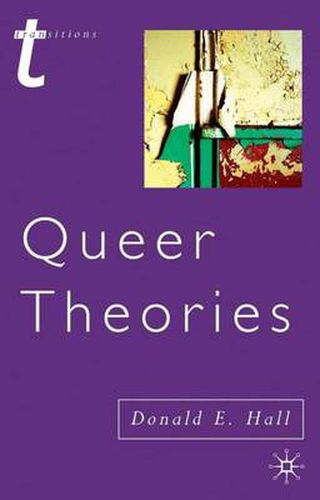Readings Newsletter
Become a Readings Member to make your shopping experience even easier.
Sign in or sign up for free!
You’re not far away from qualifying for FREE standard shipping within Australia
You’ve qualified for FREE standard shipping within Australia
The cart is loading…






This essential introductory guide explores and aggressively expands the provocative new field of sexual identity studies. It explains the history of sexual identity categories, such as ‘gay’ and ‘lesbian’, covers the reclamation of ‘queer’ as a term of radical self-identification, and details recent challenges to sexual identity studies posed by transgender and bisexual theories. Donald E. Hall offers concrete applications of the abstract theories he explores, with imaginative new readings of such works as ‘The Yellow Wallpaper’, Dr Jekyll and Mr Hyde, Orlando and The Color Purple.
Throughout, Hall urges the reader to grapple with the changing nature of sexual identity in the twenty-first century and asks searching questions about how we might identify ourselves differently given new technologies and new possibilities for sexual experimentation. To students, theorists and activists alike, Queer Theories issues a challenge to continue to disrupt narrow, traditional notions of sexual ‘normality’ and to resist setting up new and confining categories of ‘true’ sexual identity.
$9.00 standard shipping within Australia
FREE standard shipping within Australia for orders over $100.00
Express & International shipping calculated at checkout
This essential introductory guide explores and aggressively expands the provocative new field of sexual identity studies. It explains the history of sexual identity categories, such as ‘gay’ and ‘lesbian’, covers the reclamation of ‘queer’ as a term of radical self-identification, and details recent challenges to sexual identity studies posed by transgender and bisexual theories. Donald E. Hall offers concrete applications of the abstract theories he explores, with imaginative new readings of such works as ‘The Yellow Wallpaper’, Dr Jekyll and Mr Hyde, Orlando and The Color Purple.
Throughout, Hall urges the reader to grapple with the changing nature of sexual identity in the twenty-first century and asks searching questions about how we might identify ourselves differently given new technologies and new possibilities for sexual experimentation. To students, theorists and activists alike, Queer Theories issues a challenge to continue to disrupt narrow, traditional notions of sexual ‘normality’ and to resist setting up new and confining categories of ‘true’ sexual identity.